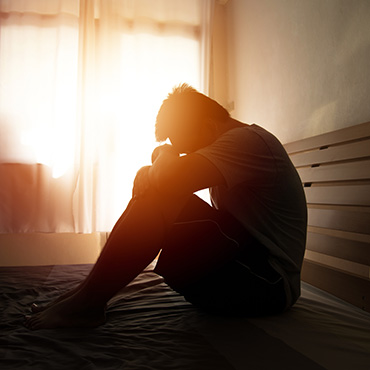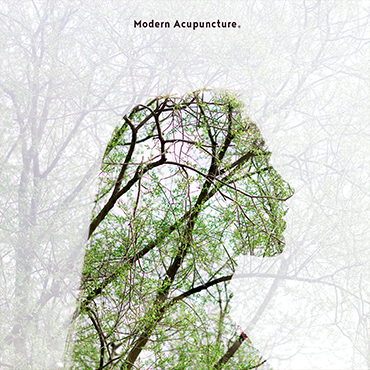Modern Acupuncture on How Mental Health Disorders like Anxiety and Depression commonly Coincide with Sleep Problems

Good sleep is essential for our mental well-being. If you have ever experienced back-to-back nights of disturbed sleep or jet lag from a long flight, you've likely felt tired, worried, cranky, or sad the next day.
It is no surprise that sleeping problems, or regularly disrupted sleep patterns, are associated with anxiety and depression.
Sleep problems, commonly termed insomnia, include difficulty falling asleep, staying asleep, and regular disturbed sleep patterns. All of these sleep issues limit the whole 7 hours of sleep recommended for optimal recovery and health.
The research is ongoing to understand better the connection between sleep problems and mental health issues, such as anxiety and depression.
The majority of evidence suggests that the relationship between sleep problems and anxiety and depression is strong and goes both ways. Mental health disorders tend to make it harder to sleep, and at the same time, insomnia can start and worsen both anxiety and depression.
Depression and Sleep Problems
It is estimated that over 300 million people worldwide have depression, a type of mood disorder marked by feelings of sadness or hopelessness.
Feelings of sadness, disappointment, or hopelessness that persist for more than two weeks, are felt nearly every day, and remain for most of the day are common patterns of depressive disorders. These feelings also commonly interfere with daily life in school, work, or relationships.
Depression and sleep are closely connected. Almost all people with depression experience sleep issues. In fact, long-term research shows that 75% of depressed people experience symptoms of insomnia, and many people with depression also experience excessive daytime fatigue.
Sleep issues may contribute to the development of depression through changes in the function of the neurotransmitter serotonin. Poor sleep affects the body's stress system and increases vulnerability to depression.
Anxiety and Sleep Problems
Anxiety disorders are the most common mental health problem in the United States. Every year, anxiety disorders in America affect an estimated 20% of adults and 25% of teenagers.
Anxiety disorders have a strong association with sleeping problems, and poor sleep is known to have swept negative effects on overall health.
Worry and fear contribute to a state of hyperarousal with the mind racing, and this is considered to be a key cause of insomnia, both falling asleep and staying asleep.
Research has found an especially strong connection between PTSD and sleep. PTSD affects many veterans, and the Department of Veteran Affairs has found that at least 90% of U.S. veterans with combat-related PTSD from recent wars have insomnia symptoms.
Historically, sleeping problems were seen as a consequence of depression and anxiety, but growing evidence suggests that poor sleep may induce or exacerbate these mental health issues. The evidence to date points to a bidirectional relationship with a negative feedback loop - poor sleep worsens mental health, then further interrupts sleep.
This understanding can lead to new and effective treatment options.
Addressing sleep issues first can develop a good foundation for improving anxiety and depression. For at least some people, a focus on improving sleep may alone be an effective treatment solution for mild symptoms of anxiety and depression.
Specific techniques like meditation and mindfulness for relaxation and reducing worry can help with daytime and night-time symptoms of both anxiety and depression.
Complimentary medical treatments, such as Acupuncture are also an effective approach for sleep issues and mental health.
In fact, the Harvard Medical School, Cleveland Clinic and Mayo Clinic all recommend this natural therapy as an effective treatment.
If you're concerned about your sleep and mental health or know anyone suffering from these issues, we encourage you to visit your local Modern Acupuncture clinic. Our Licensed Acupuncturists will discuss your unique health concerns and address the root causes that lead to sleeping problems, depression, and anxiety.
Acupuncture Helps to Relieves Symptoms Associated with Stress like Anxiety and Depression
Modern Acupuncture® is a natural stress relief solution and the leading provider of Acupuncture in the U.S. The most studied theories show that Acupuncture stimulates the body to release naturally produced “feel good” endorphins and stimulate the parasympathetic or “rest and digest” response in our body, alleviating symptoms associated with stress.
[Back to main news page]



